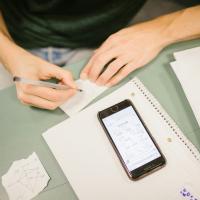New steering document for ECEC in Spain

On February 1, the Council of Ministers of Spain approved the Royal Decree 95/2022 which establishes the organization and minimum contents of Early Childhood Education and Care (ECEC) from 0 to 6 years (ISCED 0), and which, for the first time, regulates and provides an educational character to the education stage from 0 to 3 years. Early childhood education is not compulsory and it is arranged in two cycles: ages 0 to 3 (ISCED 01), and ages 3 to 6 (ISCED 02).
One of the objectives of this new Royal Decree, within the framework of the new Educational Law LOMLOE 3/2020, is the progressive implementation of the first cycle through a public offer and the extension of its gratuity. It also focuses on prioritizing the access to ECEC of students at risk of poverty and social exclusion, and palliate the situation of low rate of schooling.
The purpose of ECEC in Spain, as stated in the Royal Decree, is to contribute to the physical, affective and social development of children. In order to do so, the new legislation defines the objectives, purposes, general and pedagogical principles, and key competences for early childhood education, as well as the specific competences, evaluation criteria and basic knowledge of each of the three areas in which these contents are organized (growth in harmony, discovery and exploration of the surroundings, and communication and representation of reality).
The specific competences of each area include the abilities that students must master in activities or in situations, whose approach requires the basic knowledge of each area. These specific competences constitute a connecting element between the basic knowledge of the areas and the evaluation criteria.
As stated before, the main novelty of this reform consists in the new educational character of the first cycle of ECEC. The first three specific competences for the first cycle (0-3 years) refer to aspects related to their own personal development:
- Specific competence 1: Progress in the knowledge and control of their bodies and in the acquisition of different strategies, adapting their actions to the reality of the environment in a safe way, building an adjusted and positive self-image.
- Specific competence 2: Recognize, express and progressively regulate their emotions, expressing needs and feelings to achieve emotional well-being and affective security.
- Specific competence 3: Adopt models, rules and habits, developing confidence in their possibilities and feelings of achievement, to promote a healthy and eco-socially responsible lifestyle. The last specific competence for this cycle attends to the necessary correlation between the construction of one's own identity and the interactions in the sociocultural environment:
- Specific competence 4: Establish social interactions in equal conditions, valuing the importance of friendship, respect and empathy, to build their own identity based on democratic values and respect for human rights.
The basic contents of the area is presented in four blocks: the first two focus on the development of students' identity, in its physical and affective dimensions; the third, in self-care and care for the environment; and the fourth attends to the interaction with the civic and social context.
In addition, the publication of this Royal Decree goes hand in hand with the investment in education introduced by the Recovery Plan to increase the number of places in the first cycle of early childhood education. This measure will have a great social impact because it will make it easier for at least 60 000 families to send their children to school from early childhood. It is planned to achieve this goal over the coming years.
More information: https://educagob.educacionyfp.gob.es/curriculo/nuevo-curriculo/menu-curriculos-basicos/ed-infantil.html
Source: Eurydice Unit Spain




